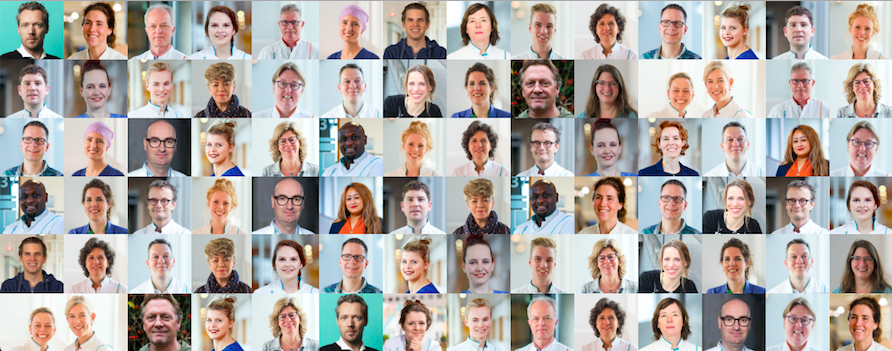PhD candidate in Cognitive Neuroscience
PhD candidate in Cognitive Neuroscience
You cannot apply for this job anymore (deadline was 31 Jul 2017).
Browse the current job offers or choose an item in the top navigation above.
Job description
We invite applications for a PhD project in the field of cognitive neuroscience. This four-year position is part of a research project on the neural dynamics of memory reconsolidation. The project is supervised by Dr. Marijn Kroes and embedded in the Behavioural Neurogenetics laboratory (PI: Judith Homberg) at the Donders Institute for Brain, Cognition and Behaviour in Nijmegen (the Netherlands) and Department of Cognitive Neuroscience of the Radboud University Nijmegen Medical Center (Promotor: Guillen Fernandez), and is funded by a Society in Science – Branco Weiss grant. The position is funded for 48 months, starting fall 2017.
Memories define who we are. We remember emotional experiences especially well, which helps us to find reward and avoid danger. Yet, emotional memories can also hurt us and contribute to psychiatric disorders. Classical theories assume that memories are rigid, but for memories to be adaptive they have to be flexibly updated when our environment changes. Recent research suggests that a reminder can reactivate specific consolidated memories and temporarily renew their flexibility, referred to as reconsolidation. Interventions during reconsolidation (electrical brain stimulation, pharmacology, or interference learning) can modify, or even eradicate, specific memories. This leads to the intriguing possibility that an understanding of this persistent, flexible nature of memory will enable targeting and changing specific learned responses and memories that contribute to maladaptive mental states and behaviours. This project aims to discover the neurocognitive mechanisms of reconsolidation by 1) developing a neural signature of memory reconsolidation across species (human, rodent), 2) investigating differences in reconsolidation of fear responses and episodic memory, 3) identifying optimal reconsolidation intervention methods, and utilize this knowledge to improve clinical treatments.
The project will test the hypotheses that (1) offline replay of neural memory representations underlie reconsolidation, and that (2) the behavioral and neural principles of memory reconsolidation differ depending on the type of memory assessed. The focus of this PhD project is to test these hypotheses in humans - in close collaboration with parallel studies in non-human animals. The project will assess reconsolidation of cued fear/threat memories, contextual fear memories using immersive Virtual Reality, and episodic memories for threatening events, use behavioural and pharmacological intervention methods, measure psychophysiological responses (skin conductance, hear rate, startle) and employ multivariate functional magnetic Resonance imaging (fMRI) analyses.
Specifications
- max. 36 hours per week
- Nijmegen View on Google Maps
Requirements
Ideal candidates will have:
- A Master’s degree in cognitive neuroscience or an adjacent field (psychological, biological, biomedical, or computer sciences);
- A strong interest for fundamental research in cognitive and affective neurosciences and/or its application to psychopathology;
- Experience in functional MRI design, acquisition, and analyses, including the use of Matlab;
- Experience in acquisition and analysis of peripheral psychophysiological data (e.g., autonomic nervous system measures);
- Experience in VR game design (Unity);
- The capacity to participate in an interdisciplinary and translational research environment;
- Have interpersonal and communication skills to effectively collaborate and communicate in academia;
- A proactive and goal-directed attitude and good organizational skills;
- Fluency in written and spoken English.
Candidates who only partially meet this profile are nonetheless strongly encouraged to apply.
Conditions of employment
Fixed-term contract: 4 years.
- Salary is € 2244 gross per month in the first year up to a maximum of € 2874 gross per month in the last fourth year, plus additional vacation bonus (8% per year) and end of year payments (8.3% per year).
- The earliest (and preferred) start date for these positions is September 2017, but can be flexible.
- Upon commencement of employment we require a certificate of conduct (Verklaring Omtrent het Gedrag, VOG). Radboud university medical center’s HR Department will apply for this certificate on your behalf.
Employer
Radboudumc (university medical center)
The Radboudumc center advances human knowledge by conducting biomedical, translational and clinical research in order to improve wellbeing.
Our key strength is medical life-sciences and clinical practice, with an impressive infrastructure comprising state-of-the-art technology platforms and (translational) research facilities. The Radboudumc is therefore uniquely positioned in the emerging Euregio and Dutch healthcare infrastructure to play a leading role in the new healthcare paradigm of prediction, prevention and personalised medicine.
The Radboudumc focuses on scientific health challenges of today, with an eye on emerging diseases of the future.
Our mission: ‘to have a significant impact on healthcare’.
Department
Research environment
The project is embedded in the unique and excellent infrastructure of the Donders Institute for Brain, Cognition and Behaviour. The Donders Institute offers three 3 Tesla MRI systems, MR-compatible systems for recording EEG and peripheral psychophysiological measures, access to a 7 T MRI system in Germany, a 275-channel MEG system, an EEG-TMS laboratory, and state-of-the-art computational facilities. In addition, the Donders Institute provides access to patient populations, and the Translational Neuroscience Unit with state-of-the-art facilities for anatomy, molecular, and neurophysiological research with non-human animals. All facilities are fully research-dedicated laboratories with excellent technical support.
The Donders Institute furthermore provides a unique and stimulating learning environment for young researchers, including a high-profile graduate school and in-house methodological expert courses. Research into memory, emotions, and stress-related disorders are an important focus area at Radboud university medical center. Researchers working on this theme jointly organize regular discussion meetings and lectures to promote integration of research conducted within molecular, cellular, systems, behavioral, and clinical neurosciences across campus.
Specifications
- PhD; Research, development, innovation
- Natural sciences; Health
- max. 36 hours per week
- University graduate
:fill(white)/logos/umcr-en-wide.png)
